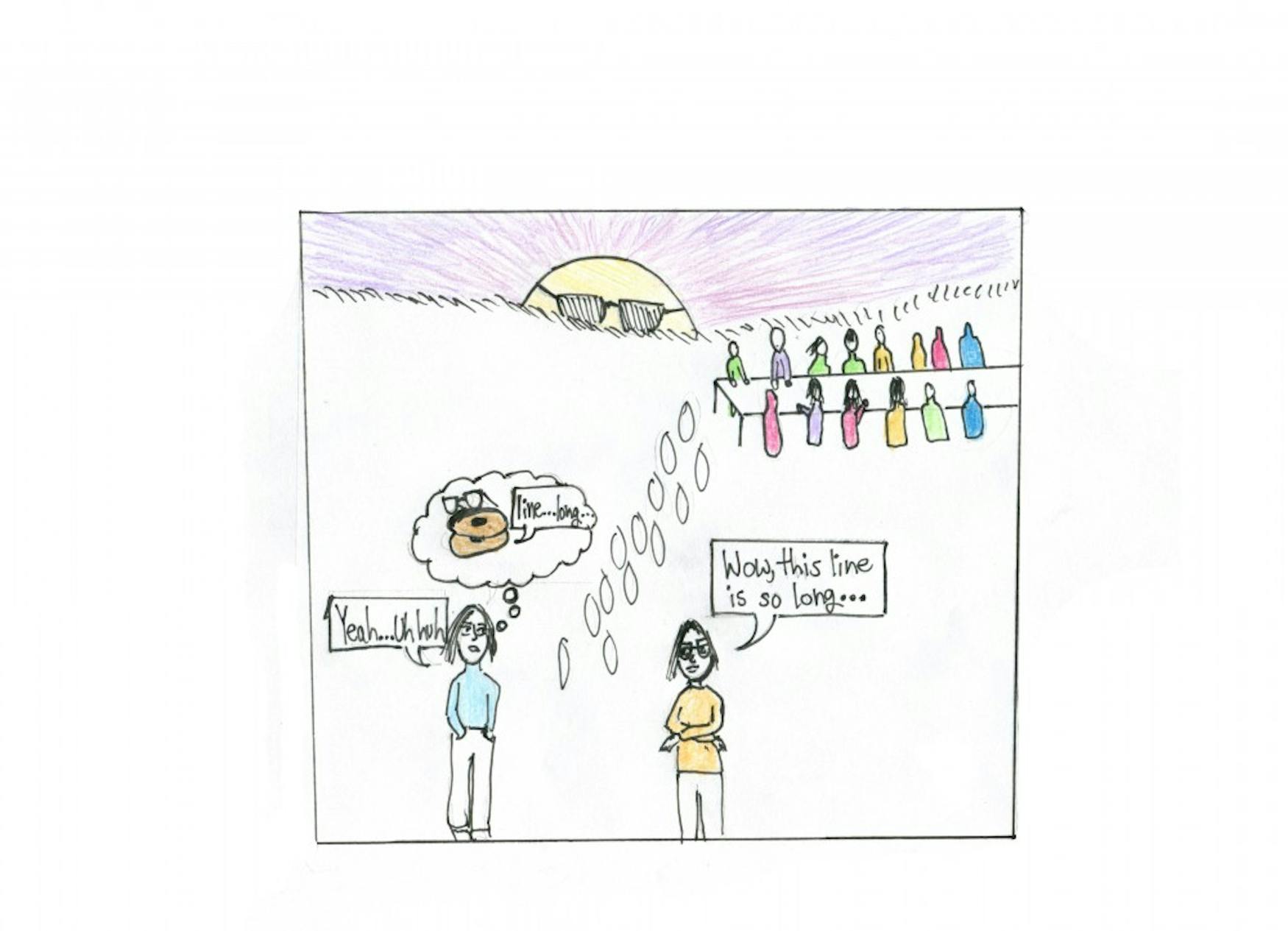Editorial: Yom Kippur Break Fast
Community members gathered on the Great Lawn on Wednesday night for the annual Break Fast — known as “Break the Fast” in the past — where the University provided free food and drinks. As in previous years, people who had not fasted for Yom Kippur were invited as well, but this year, the event started earlier, around the time that the fast ended. This led to long lines and limited seating, as fasting students arrived around the same time as non-fasting students. This board urges the University to assess this year’s event and take steps to ensure that, in the future, the entire Brandeis community can participate in Break Fast without inconveniencing students who have been fasting for 25 hours.
Previously, Break Fast began approximately an hour before the fast actually ended, which enabled non-fasting students to get their food and make room for fasting students, according to emails from former Senior Vice President of Students and Enrollment Andrew Flagel on Oct. 9, 2016 and Sept. 27, 2017. By the time the fasting students had arrived, the lines for food had largely subsided. This year, however, Break Fast began when the fast ended at 7:30 p.m., leading to crowding and long wait times. This board recommends that the University revisit the earlier start time in future years to avoid such crowding.
Another departure from past protocol exacerbated the issue this year. In previous Break Fast events, not all of the food tables were certified kosher. This meant that students who did not keep kosher would not have to wait in the same lines as students who did, which kept the kosher line more manageable. This year, all the food tables were kosher. Although this change was well intentioned, it meant that all the tables had long lines. Future Break Fast events could keep the all-kosher format but reserve one food table for only those students who fasted, as has been done in previous years.
Finally, food-restocking practices could be improved. At one point, all four tables were inaccessible while staff restocked them. Instead of this simultaneous approach, a rotating setup might be more helpful. Tables could be restocked one at a time while the other three remain open to serve food.
On the whole, the Yom Kippur Break Fast is a worthwhile program, but this year’s event revealed areas in need of improvement.



Please note All comments are eligible for publication in The Justice.